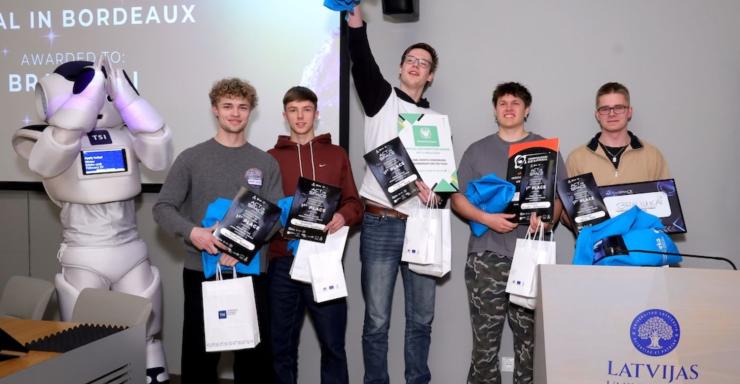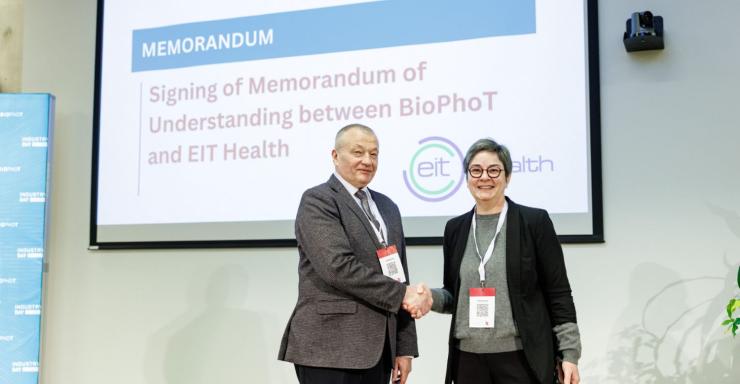I keep repeating it — and will continue to do so: looking at the European Commission’s (EC) stance and recent decisions, it is clear that this is the time for startups. Europe believes that there is enough talent and a strong foundation here for innovation to deliver the much-needed breakthrough, enabling us to compete successfully in the global economy. Europe is ready to financially support new initiatives. So — if not now, then when? And let’s not forget: Latvia is part of Europe, and we must not allow ourselves to think that we are any less capable than innovators from other countries.
The role of startups in European Union policy has never been as important as it is now. For the first time, startups have their own Commissioner. Under the leadership of Ekaterina Zaharieva, a strategy for startups and scale-ups is being developed and is expected to be published by the end of this month.
Earlier this year, European Commission President Ursula von der Leyen announced a major initiative at the Davos Forum — the creation of a so-called “28th regime.” This would mean a unified, simplified framework for corporate law, labor regulations, and taxation applied specifically to startups across Europe, significantly easing their path to scaling within the EU.
On May 5, President von der Leyen also introduced a new initiative: “Choose Europe for Science.”

Here is a fluent and professional English translation of your text:
Science and Talent in the Spotlight
The goal of the new initiative is to strengthen Europe’s role as a global hub for research, innovation, and talent.
To achieve this goal, the following tools will be used:
- €500 million in funding aimed at attracting world-class researchers to work in Europe;
- The creation of “super grants” under the European Research Council to support outstanding scientists over the long term;
- Expansion of the Marie Skłodowska-Curie Fellowships through increased funding and longer-term contracts — especially in emerging fields such as artificial intelligence;
- A target to increase investment in research and development (R&D) to 3% of GDP by 2030.
This initiative is designed to work in close coordination with the “Union of Skills” programme, which aims to:
- Attract talent from around the world through a simplified visa system and competitive working conditions;
- Strengthen the EU’s talent base by improving professionals’ skills, expanding STEM education (particularly among women), and encouraging cross-border mobility.
These two initiatives go hand in hand. For both startups and scale-ups, a lack of skilled workforce remains one of the main barriers to growth.
That is why Europe’s direction is clear — invest in talent, facilitate access to skills, and strengthen the innovation ecosystem across the continent.
Europe’s Largest Economy Leads by Example
Germany’s new Chancellor Friedrich Merz has just been confirmed, and a coalition agreement has been signed — one that was closely analyzed by the Innovate Europe Foundation. This analysis is particularly relevant because Germany, as the EU’s largest economy, often sets the tone and reflects the general direction of the member states. Representatives of the startup and tech ecosystem were quick to note that the agreement includes several forward-thinking commitments.
The term “startup” is mentioned 12 times in the document — across sections ranging from the economy and finance to industry and defense. In the entrepreneurship section, startups are described as “hidden champions” and “future DAX companies” (the DAX being one of Germany’s main stock indices).
Germany plans to establish a new Federal Ministry for Digital Affairs, committed to reducing bureaucracy through digital processes and creating a one-stop shop for startups, promising service within 24 hours.
While the agreement includes tougher policies on illegal migration and asylum (a key campaign promise), it also contains measures to help startups attract talent — such as better employee stock options and policies to bring in more international tech specialists.
Germany is also making a strong commitment to invest in artificial intelligence and cloud infrastructure. The coalition agreement outlines various ways to encourage private and institutional capital investment in venture capital and innovation. The government has clearly stated it is ready to become a more active customer for startups. One such move: raising the procurement threshold under which the government can purchase services without a formal tender — potentially up to €100,000, if the seller is a verified startup.
Let’s hope that Latvia and the broader Baltic region will be inspired by the steps taken by Europe’s largest economy — steps that are arguably more difficult for large countries than small ones like Latvia. It’s high time we recognize the strength of a united Europe and ensure we contribute our share.
There are plenty of examples that demonstrate our capabilities. Let me mention just one: 10% of the world’s quantum algorithms have been developed thanks to the work of Latvian scientists.


